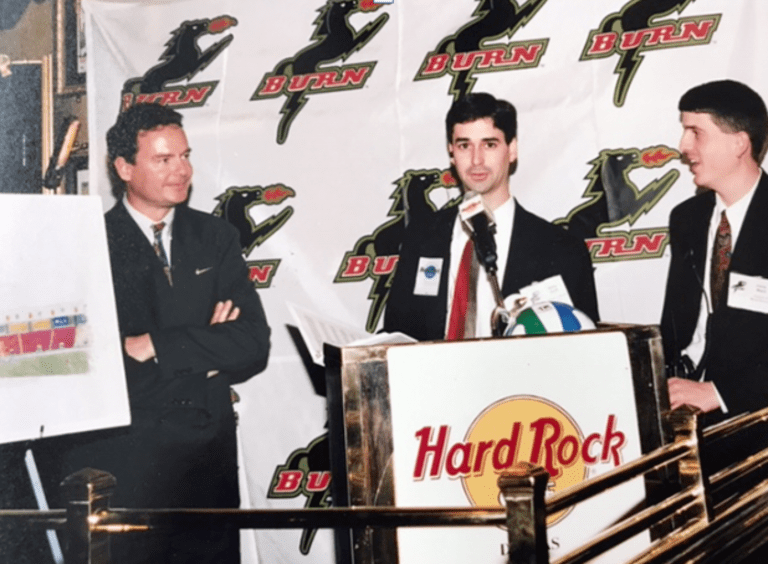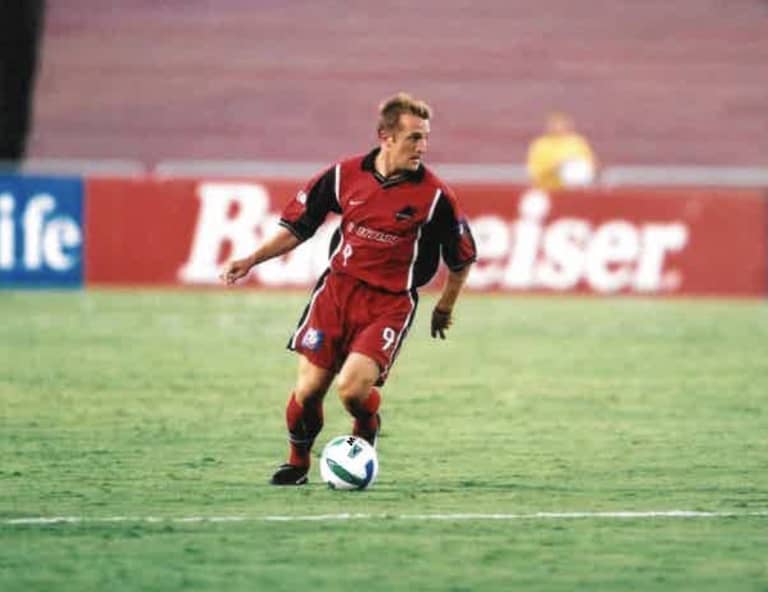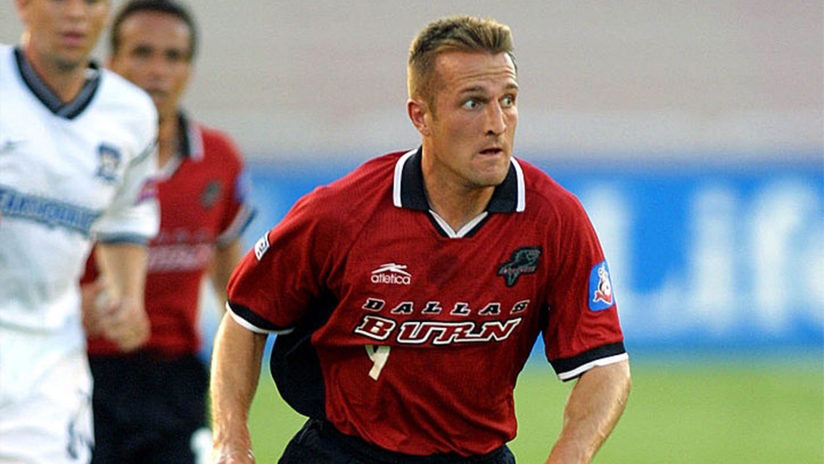FRISCO, Texas – For people of a certain age, everyone remembers where they were on the morning of September 11, 2001.
And everyone, regardless of age, knows the story now.
“I was actually heading to the office, listening to The Ticket, and pulling up to a Starbucks when they first started talking about a plane that had hit the World Trade Center,” remembers Andy Swift, general manager of the Dallas Burn (now FC Dallas) at the time. “But I remember that everybody was assuming it was like a small plane that had hit it. They were wondering, you know, how did that happen? And nobody could believe that a plane had actually hit a building. But nobody at that point was thinking it was a terrorist attack.”
“I remember like it was yesterday,” said Jason Kreis, the 1999 MLS MVP and Dallas’ all-time leading goal-scorer. “I don’t remember a lot about my early years in the league but I remember exactly where I was then. I was at the gym at the college where we were training at that time, getting my legs ready before training. I was on a (stationary) bike and just looked up at the TV and that was the first I’d seen about it. It was just shock and awe.”
That Tuesday morning at 10:37am CT, just 34 minutes after the second plane hit the World Trade Center, American Airlines Flight 77 crashed into the Pentagon in Washington D.C.
The Dallas Burn were scheduled to play D.C. United at RFK Stadium that Wednesday—just over six miles from the Pentagon.
“We were flying into DC that day to do a walkthrough at the field later on that afternoon,” Swift said. “They never got on the buses to head to the airport. It was pretty scary because we were scheduled to play there the next day.
“I remember my own parents, they knew I was going to DC that day. They didn't know the exact flight info so I had to make a quick call to them to say, ‘Hey, I'm good, everything's good.’ But that was kind of the prevailing environment for those first few hours.”

Following a league-wide conference call, that Dallas Burn vs. DC United game was cancelled, along with the few remaining games in the 2001 regular season.
“No one felt like playing games,” Kreis said. “The sport of soccer was just a small thing compared to what was happening in our country. I think we all understood and agreed with those decisions because nothing was as important as reconciling and coming together as a country. So that was the natural and right thing to do.”
The final MLS standings were decided by points per game. Nine days later, MLS restarted with the first round of the playoffs. First game up, Dallas Burn vs. Chicago Fire at Soldier Field.
“In a way, it was kind of a unifying event to have the league start playing again,” Swift said. “I guess the event kind of put sports in perspective. There are bigger, more important things in life than wins and losses, especially when you have a moment or a catastrophic event like that.
“But at the same time, you know, it was sports that helped get us healing again. By restarting and having people go out to the stadiums and be together in a unified way. So, it's like one end of the spectrum to the other about what sports can be when you think about.”

The Burn lost that game 2-0 before returning to Dallas for the second leg where the Cotton Bowl hosted a crowd of 17,149 people—the third-largest playoff attendance that season.
“I remember that day, it was relief to be able to be there,” Swift continued. “We were happy. It was ceremonial. We had a big flag and acknowledging what had happened. Everybody was thinking the same thing. We’re in this together, and it wasn't just in this country, it was a little bit worldwide. I think the whole world felt for what had happened.
“People were looking to go and be together at an event and celebrate things that we didn’t want to lose—just going out to sporting events being one of them.”
Dallas earned a 1-1 draw that day but eventually lost the three-game series to Chicago. And while the events of 9/11 changed the country forever, sports helped give its people a sense of normalcy during its most challenging time.
“In a lot of ways there was a lot of relief that life can get back to normal and life will get back to normal,” Kreis said. “To be a part of anything culturally where you feel like you’re helping people ease pain and get back to normal life, that’s obviously a very positive place to be.
“There are very few things in your life where you can remember exactly where you were when something happened, and that was certainly one of them.”





